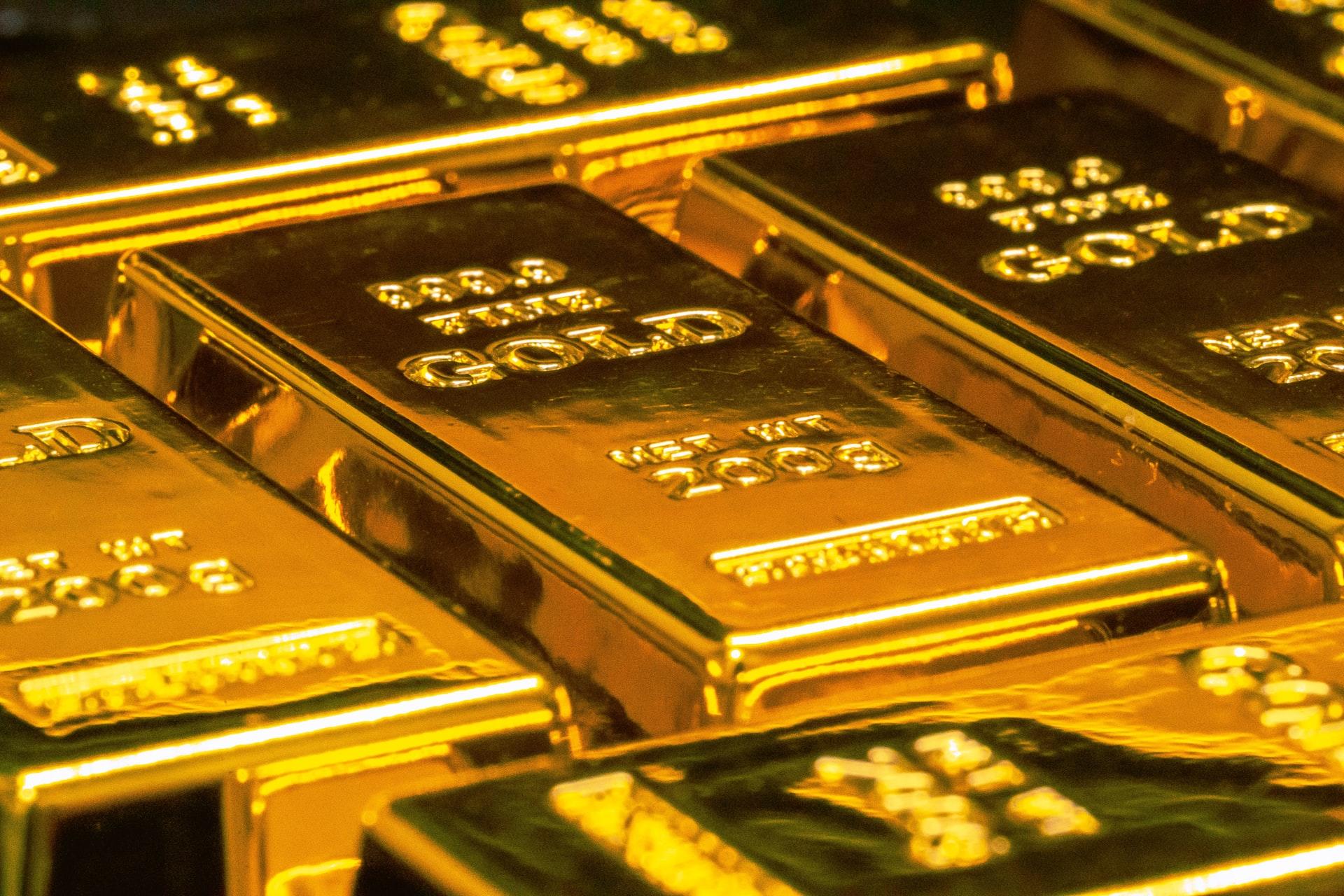Inflation is bad the world over. Currently, there's not a nation on earth that isn't feeling the economic pinch. Even China, the only country that weathered pandemic economic shocks relatively well, is now facing inflation woes. Lately, the World Bank and the International Monetary Fund (IMF) have said aloud what we all intuited: the world's future isn't rosy. In the UK, things look a little direr. But why?
- The UK never truly recovered from the Great Recession
- Brexit
- The coronavirus pandemic
- Post-pandemic supply chain issues disrupted manufacturing and sales
- The Bank of England (BoE) has kept a tight leash on lending despite low interest rates
Today's inflation comes down to a perfect storm of elements that no economy was perfectly positioned to weather. The reasons for the UK's inflationary troubles today began more than 50 years ago. All of these economic variables - the reasons for the current inflation crisis, originate from the switch to global fiat currencies in 1971. Let's touch on that event before learning all about inflation today.

Setting the Stage for Inflation
After the Second World War, devastated countries relied on the strong US economy to rebuild. Even as the war raged, world leaders anticipated a rough future. So delegates from the allied nations met in the US to set up rules and regulations for the international monetary system that would be installed after the war. All attendees agreed to peg their currencies' value to the US dollar. The US, in turn, agreed to peg its currency's value to gold. This Bretton Woods Agreement became a part of the later Marshall Plan, which provided funds for rebuilding Europe.

In 1971, US president Nixon took it upon himself to end that agreement. Decoupling the dollar's value from gold essentially meant that the US dollar no longer had intrinsic value. However, he did not detach world currencies from the US dollar. It's a bit like putting up collateral for a loan. But then, after making a few payments, you declare that the collateral is not accessible to the lender if you default. It means the loan is no longer secure.
Since then, world currencies, including the US dollar, have been backed by nothing other than an arbitrary debt-and-credit system. This gives central banks around the world great latitude in valuing their currency and creating new money. The US, the European Central Bank and the Bank of England (BoE) each have their own policies for creating money. So does the Organisation for Economic Co-operation and Development (OECD). This is how the value of money over time has become arbitrary.
The 2008 Financial Meltdown and UK Inflation
"The U.S. government has a technology, called a printing press (or today, its electronic equivalent), that allows it to produce as many U.S. dollars as it wishes at no cost." - Ben Bernanke, US Federal Reserve Chairman, Nov 2002
Once the Bretton Woods Agreement was abandoned, we saw more and more actions taken to chip away at the laws meant to safeguard the US economy. Quiet repeals of legislation. Seemingly insignificant monetary policy moves that would later create economic earthquakes. The US Federal Reserve chairman openly admitted they print money at will. If central banks can print money at will, why does inflation happen?
Ultimately, with nothing but debt anchoring it, the US economy crashed. Unfortunately, the half-century-old Bretton Woods agreement meant that global currencies would crash, too. Some countries were affected far worse than others but, everywhere, economic failures were laid bare. Greece, Spain and Portugal made headlines for their ensuing austerity measures. The UK didn't escape major harm, either.
UK banks had bought many of those worthless financial instruments from US banks, meaning that they too were exposed to failures in the US housing market. As the bank's losses increased, their inability to borrow affected their capacity to issue loans and mortgages. Indeed, UK banks' liquid assets became so depleted that our government had to bail even the larger ones out. At the same time, to spur the flagging economy and inspire investor confidence, the Central Bank cut interest rates to 0.5%. Typically, such a move stimulates the economy but this time, it became one of the causes of inflation in the UK.

Inflation and The Coronavirus Pandemic
Great Britain suffered one of the slowest recoveries on record from that economic event. The UK's productivity crisis, which started in 2007, lasted a full 10 years - until 2017. Other factors aggravated that already bad situation. They include years-long low gross domestic product (GDP) output, high unemployment and over-reliance on the financial sector to drive the economy. And Brexit, of course.

Taking all these variables into account, it's no wonder we were not prepared for the COVID economic hit. Multiple lockdowns meant nobody producing, dining out or travelling. Trade screeched to a halt around the globe. Many governments, the UK's included, distributed stimulus payments so their populations could stay afloat. Despite those initiatives, world economies flagged.
Investors grew skittish. Citing virus fears, companies' stocks traded on the London stock market all fell in value. The BoE, which had finally raised interest rates to 0.75% after the slow recovery of the 2008 event, was forced to cut them again, this time to 0.25%. And then, a few weeks later, to 0.10%, all to stimulate the economy. Instead, it had a negative effect. Soon, the BoE predicted the UK would endure its worst recession in 300 years.
Supply Chain Issues and Cost Inflation
Cascading economic quakes meant the UK was already not well positioned to recover from the coronavirus pandemic. Keen to stave off economic stagnation, the government doled out millions more in stimulus payments. Statistics show that many deposited their stimulus money into savings. Parking cash was (and is) a smart move but it did nothing to budge the economy. Things might have turned out better had there been things to spend money on once the lockdowns ended.
When people were ready to part with their cash, they found little reason to splurge. Brexit had made trading more complicated. The influx of goods had slowed even before the pandemic. Factories around the world had shut down for more than a year as COVID raged. Thus, there wasn't much to import. Warehouses depleted their stocks while we remained in our homes, buying what we could online and during infrequent trips to the market.
For the most part, businesses suffered despite pandemic relief packages. Virtually every retail outlet and restaurant had to raise their prices, both to cover the more expensive supplies and make up for lost profits. Shrinkflation became a household word as food producers reduced per-volume contents while selling the products at the same price. Much to consumers' fury, the package size didn't change, tricking many into believing that some goods were inflation-proof.
The war in Ukraine creates supply chain issues that make our bread and flour much more expensive. Russia hoarding its gas has an inflationary effect on our energy prices. China's zero-COVID policy, which compels local governments to lock down entire regions for weeks and months at a time causes scarcity - a deficit in the supply of goods. That too causes UK inflation.

Bank of England Inflation and Lost Profits
When we talk about lost profits, we don't just mean for businesses. Banks' profits come from the interest on the loans they make. These days, they're not lending very much. Our central bank is no exception. They don't make personal or commercial loans, though. They lend to other banks and financial institutions. They also lend to the government.
When the BoE lowers its interest rate, it encourages those institutions to borrow. However, slashing interest rates to the bone means they're making loans that will profit them only a little. The less profit they generate, the less they have to invest in financial instruments that will boost their bottom line. The fewer assets they have, the lower their standing on the global economic stage. And the deeper they cut interest rates, the less room they have to wrestle inflation back into control.
All of the strategies the BoE has used to control inflation are time-tested, effective solutions. But they're not working this time. Not in the UK and not very well elsewhere, either. In Europe, governments are actively strategising energy solutions for the months ahead while battling inflation. China is doing its utmost to keep its economy balanced despite its tanking property market and ongoing coronavirus lockdowns.
The US Federal Reserve has decided, against all advice, to raise central bank interest rates. Slowing down the economy is the hoped-for outcome. But, while businesses and institutions may have largely recovered from all of these economic woes, ordinary citizens have not. A sharp rise in the interest rate could put businesses back on shaky ground. That means they will be less likely to hire more workers, which will keep unemployment high. Which, in turn, affects the people who most need relief from inflation.
We don't need an inflation calculator to know that US central bank moves affect us. We know what inflation is and how we got here. Now we have to find our way back to stability.
Summarise with AI:















